I have a question regarding eslint-plugin-react-hooks.
I wanted to reduce the boilerplate code of doing a API call and storing the result into state so I created a custom hook:
export const loading = Symbol('Api Loading');
export const responseError = Symbol('Api Error');
export function useApi<T>(
apiCall: () => CancelablePromise<T>,
deps: DependencyList
): T | (typeof loading) | (typeof responseError) {
const [response, setResponse] = useState<T | (typeof loading) | (typeof responseError)>(loading);
useEffect(() => {
const cancelablePromise = apiCall();
cancelablePromise.promise
.then(r => setResponse(r))
.catch(e => {
console.error(e);
setResponse(responseError);
});
return () => cancelablePromise.cancel();
}, deps); // React Hook useEffect has a missing dependency: 'apiCall'. Either include it or remove the dependency array. If 'apiCall' changes too often, find the parent component that defines it and wrap that definition in useCallback (react-hooks/exhaustive-deps)
return response;
}
Now the custom hook works great but the eslint-plugin-react-hooks not so much. The warning in my code is not a big problem. I know i can silence this warning by adding a comment:
// eslint-disable-next-line react-hooks/exhaustive-deps
The problem is that one of the custom hook arguments is a dependency list and eslint-plugin-react-hooks dose not detect missing dependencies on it. How do I make eslint-plugin-react-hooks correctly detect dependency list problems for my custom hook? Is it even possible to have such detection for custom hooks?
